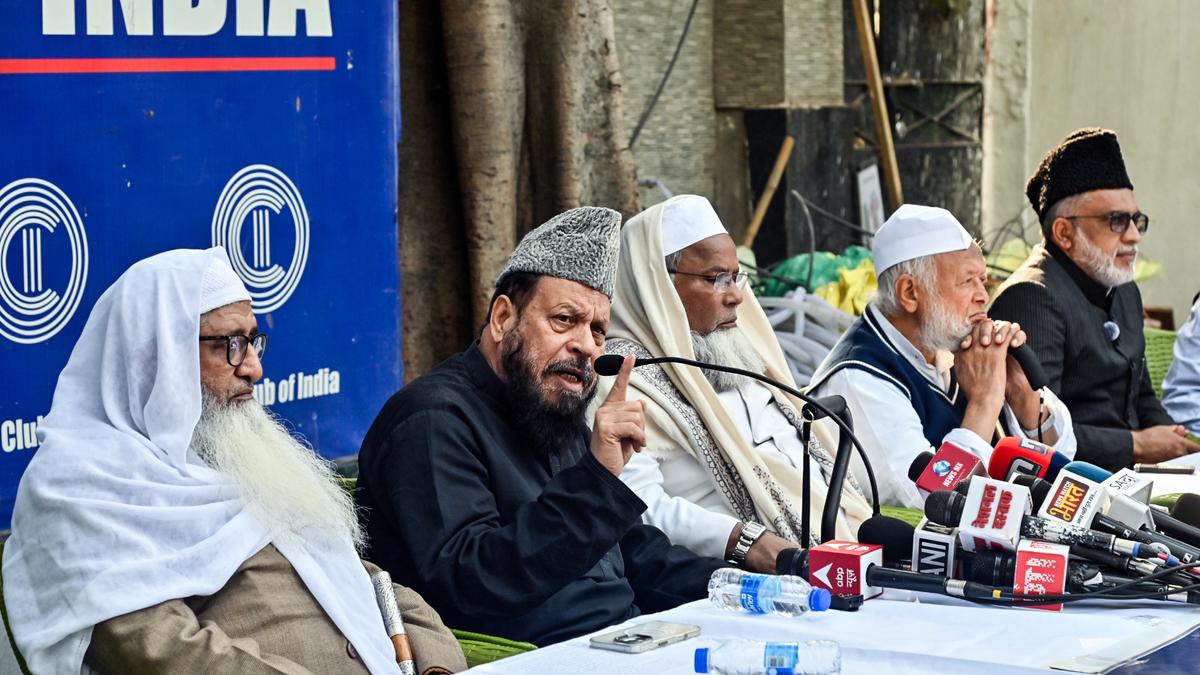 |
|
The All India Muslim Personal Law Board (AIMPLB) has vowed to pursue legal action against the recently tabled Waqf (Amendment) Bill, expressing deep concerns over its potential impact on Muslim religious properties. The Board's spokesman, S.Q.R. Ilyas, vehemently condemned the bill, characterizing it as a direct threat to mosques, madrasas, dargahs, and graveyards, asserting that its passage would lead to the dispossession of Muslim communities from their sacred spaces and endowments. The statement highlights the perceived disregard for the opinions of Indian Muslims and the opposition within the Joint Parliamentary Committee (JPC) that reviewed the bill. The accusations of an undemocratic process underscore the AIMPLB's belief that the government has not adequately considered the interests and rights of the affected community.
Arshad Madani, president of Jamiat Ulama-i-Hind, echoed these sentiments, emphasizing that the JPC's report, which includes 14 amendments to the Waqf Act, fundamentally violates democratic principles and the constitutional rights of Muslims. He detailed specific concerns regarding the transfer of authority to determine the status of Waqf properties. Previously, the Waqf Board held this power, but the proposed amendments shift this authority to a senior government officer. This change, according to Madani, introduces a significant risk of arbitrary decisions and delays in recognizing Waqf properties, effectively allowing the government to seize control of such properties indefinitely. The fear is that a deliberately prolonged review process could permanently deprive Muslims of their rightful ownership.
The sheer volume of objections received during the JPC's hearings further emphasizes the widespread opposition to the bill. The AIMPLB claims that nearly 36 million Muslims submitted objections via email, representing a significant portion of the Muslim population. Despite this overwhelming opposition, the government's apparent disregard for these concerns fueled accusations of bias, discrimination, and hostility towards the Muslim community. The spokesman's assertion that the government's approach constitutes a violation of constitutional values points towards a fundamental disagreement on the nature of religious freedom and property rights within the Indian context. The lack of responsiveness to a large-scale community outcry raises serious questions about the transparency and fairness of the legislative process.
Beyond the legal challenge, the AIMPLB is actively seeking support from opposition parties and even allies of the BJP to block the bill's passage. The call for broader support extends to Indian civil society, emphasizing the potential for this bill to set a dangerous precedent that affects not only Muslims but also other religious communities' endowments and places of worship. The framing of the bill as 'divisive' and 'draconian' highlights the potential for wider ramifications, extending beyond the immediate concerns of the Muslim community. The strategic appeal for support underscores the board's belief that the implications of this legislation transcend religious boundaries and impact fundamental democratic principles in India. The situation highlights a potential conflict between the government’s legislative agenda and the rights and concerns of a significant segment of the population, raising broader questions about religious freedom, property rights, and the democratic process in India.
